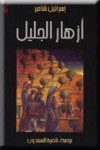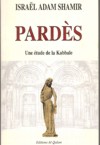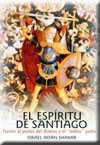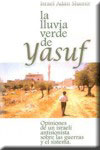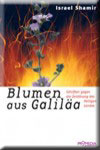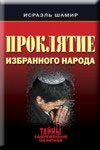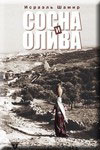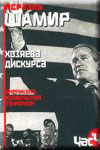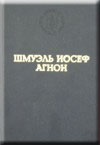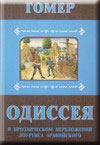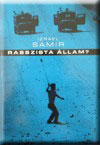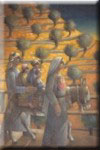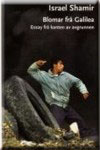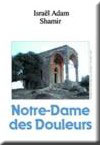Some reflections in memory of Ian Gilmour, Lord Gilmour of Craigmillar
by Ian Buckley
Let us begin with the authentic voice of the man himself, from one of his many elegant and incisive book reviews : 'There was no such thing as Palestinians, ' maintained Golda Meir, who hailed from Milwaukee. Perhaps many of us feel that the present world situation offers no opportunity for humour, but wit is one weapon that effectively pierces the armour of absurdity.
Ian Gilmour was born in Scotland in 1926, and was therefore just old enough to serve at the end of World War II. This distinguished him from his future adversary Maggie Thatcher - who somehow managed to evade any form of national service - despite conscription for women having been introduced by the Churchill government in 1942. As a sensitive and civilised man he naturally disapproved of the gangster-like capitalism introduced under Ma Thatcher and since enthusiastically continued by her 'boys' Blair and Brown. Few have commented as persuasively on the subsequent brutal coarsening of British society as Ian Gilmour.
And yet The Scotsman, just the sort of paper that Sir Ian would have read, had the temerity to refer to him as the 'wettest of the wets'. What does this silly phrase mean? That he didn't approve of the demolition of 25% of UK industry, including the closure of mines, shipyards and steel mills? Or that he was shocked by the return of beggars to the streets of English cities? As Ian noted in Dancing with Dogma : 'At the beginning of the war beggars vanished and were not seen for forty years. Then in the 1980s they reappeared on the streets of London.'
His relative lack of success in worldly political terms was only to be expected, and indeed was itself a reflection of his strong principles. Ian Gilmour was not one to go running for favours to money barons and mega-corporations.
Sir Ian's interest in the Middle East, and support for the Palestinian cause, dated back to 1967 when he was horrified by the conditions he saw in the West Bank refugee camps. He continued the commitment despite the ever-growing, indeed often grotesque media disinformation on the subject. The only slight criticism that one could make of Ian was that - rather like Edward Said - he was sometimes too gentlemanly towards the opposition.
In his later years, Ian Gilmour was active in the campaign to free Samar and Jawad, even going to the length of standing surety for Samar. For those unfamiliar with the case, Jawad Botmeh and Samar Alami are two Palestinians accused of bombing the Israeli Embassy and Balfour House in North London during 1994, despite a total lack of evidence. While the trial judge was good enough to admit that there was no evidence linking either defendant with the bombings, the jury convicted both of conspiracy to cause explosions, and Samar and Jawad were sentenced to 20 years in jail. Go figure, as they say.
Since the days of the novelist Henry Fielding, British judges have been popularly recognised as bombastic, domineering and out of touch. We imagine a musty, robed figure exclaiming : 'Who are the Beatles?' Additionally, the ordinary, decent, tax-paying working drones on the jury - accustomed to believing what they are told by authority - could hardly be familiar with the concept of the 'false flag' attack. Yet that's more or less certainly what happened in '94, prefiguring the larger-scale events of seven years later.
In the House of Lords, he was an eloquent opponent of war against Iraq. All has unfolded as he predicted, a descent into disaster and mayhem : 'Over the Middle East, American hands are extremely dirty, and much of the grime will stick to Britain'.
Had we had more Ian Gilmours, and fewer plastic mechanical politicians who buzz along in the prevailing and fashionable direction, history would be different. Britain could have held out the hand of friendship to the Arab world, and I'm sure that any friendly gesture would have been returned. Hardly anyone else in British political life - still less American - would have made reference to the total destruction of 400 out of 500 Palestinian villages, a destruction so total that not a trace of them remains today. Why, he asked, did the West praise the oppressors, and blame the victims? This reasoning would be beyond the minions of New Labour, ignorant characters who probably think that the Nakba is a fancy London restaurant.
To Ian Gilmour, Money was not God, and life was more than a supermarket. The shabby, noxious, self-deluded world-view of his opponents has, however, largely prevailed, with results that are only too obvious.
__________
At the same time, died his contemporary and a member of
nobility, the eldest Palestinian statesman Dr Haidar Abdel Shafi, the last
living PLO founder, was also along with Edward Said and Mustapha Barghouti
the founder of the Palestinian Alternative (al-Mubadara) . Abdel Shafi was an
enemy of Oslo agreements; not a friend of Arafat, objected to
pointless "peace process" and to recognition of Israel. Though
a "secular leader with strong Communist sympathies", his views actually
coincided with those of Hamas. His departure concludes a chapter in modern
history of Palestine.



